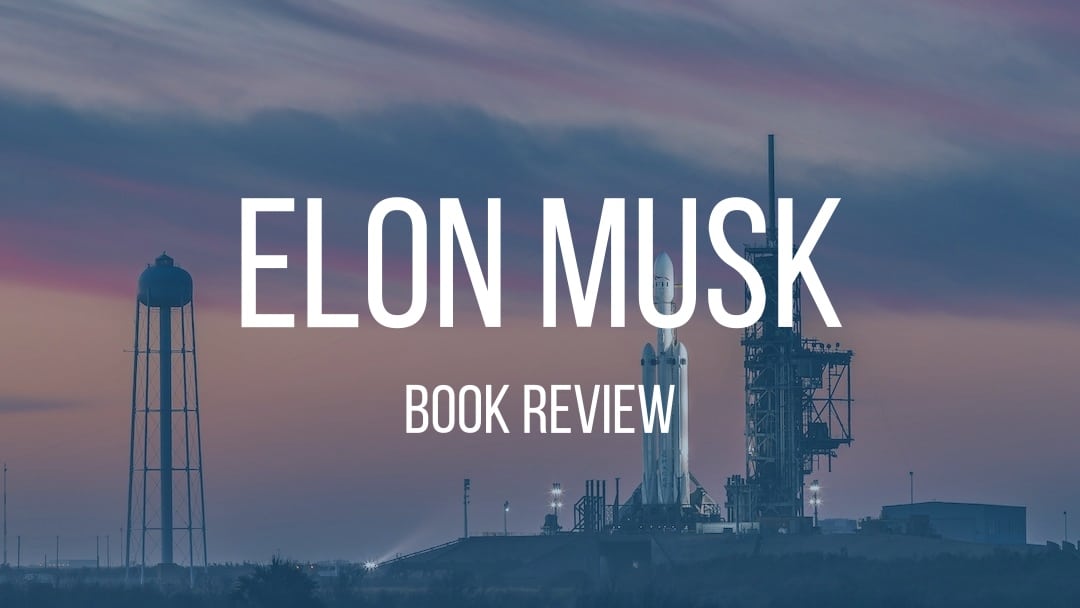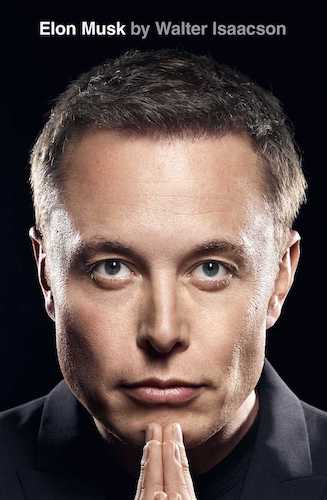The reasonable man adapts himself to the world; the unreasonable one persists to adapt the world to himself. Therefore all progress depends on the unreasonable man.
–George Bernard Shaw
Problems with Visions of Success
One of the main narratives in American culture is that hard work and success are the key to the good life. If we work hard, we will be successful, and that success will instill a feeling of contentment. But of course, life is infinitely more complicated than that. Sometimes our work becomes our coping mechanism, our way of dealing with the existential pain intrinsic to life itself. Elon Musk happens to be one of these people and, in Walter Isaacson’s recent biography Elon Musk, we are given a window into his life.
But why dedicate so space on the TPW blog to reviewing the biography of a middle-aged man who has shown no sign of public faith in Jesus? A valid question.
Elon Musk is one of, if not the most, impactful entrepreneurs of this generation. From PayPal to Tesla, SpaceX to Twitter (now X), Musk has either founded or assumed the leadership of some of the most valuable companies in the world. At the moment, he has executive roles in six: Tesla, SpaceX, Starlink, Twitter, the Boring Company, and xAI. This success, especially with Tesla, has made him at times the world’s richest man. I was curious to find out more of the why of Musk’s success. What drove him to reach such heights?
Each of these companies has been a disruptor in its respective industry, if it has not become the gold standard. And even if his artificial intelligence company xAI has yet to become a leader in the field, Musk also was cofounder of industry leader OpenAI with Sam Altman. Somehow, Musk seems to be at the center of almost every major technological movement of the last 20 years.
In some cases, he almost seemed uniquely prescient. Starting rocket company SpaceX at the nadir of U.S. space exploration—and making it profitable as the de facto contractor for NASA—is quite a feat. Even though Jeff Bezos’ Blue Origin has had some success, SpaceX remains the gold standard in private space exploration.
Further, SpaceX enabled Musk to begin Starlink, an internet provider that uses SpaceX satellites to provide internet connection to 70 countries (as of this writing). Starlink made news during Russia’s invasion of Ukraine, when Musk voluntarily provided free Starlink access for Ukraine when Russia tried to cut off communications to the country.
Musk, who loves military history and likes to think of himself as a wartime general, became uncomfortable with Ukraine’s military use of Starlink in coordinating their counterattacks on Russian forces and has restricted and criticized the use of the technology by the military. This caused significant (and legitimate) outcry over Musk as a private citizen exercising seemingly capricious and god-like control over Starlink’s use by a nation attempting to fend off attacks by a much larger Russian military.
The scope of Musk’s ambition is monumental. Basing one, two, or even three companies on new and disruptive technologies would be a lot. Musk has founded or led six. Steve Jobs, at his height, only ran three.
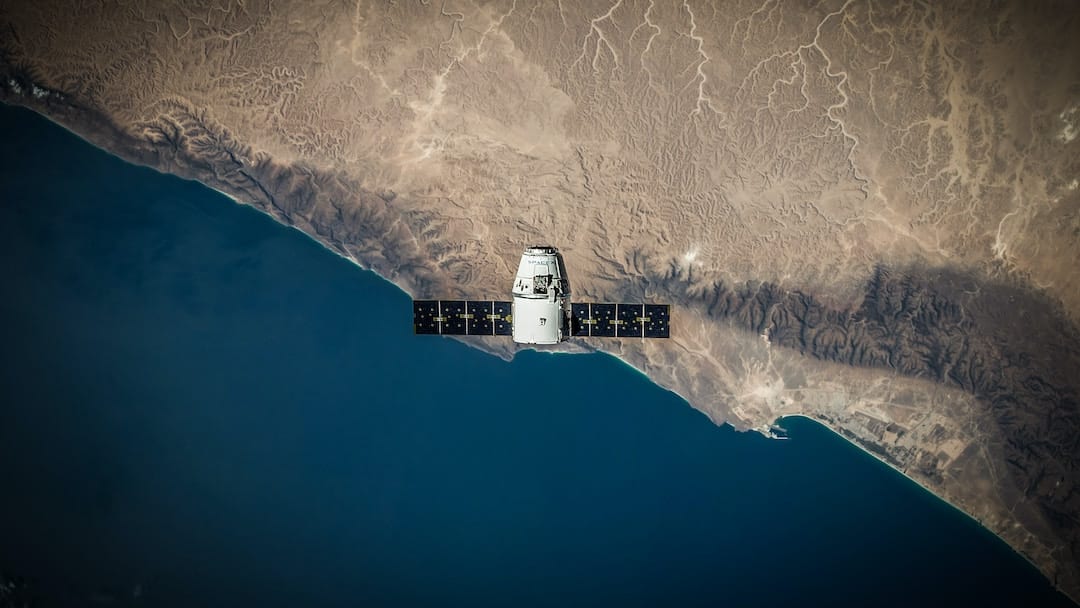
Elon Musk, The Man-Child
If you’ve ever watched the television show Silicon Valley, you get at least a bit of a picture of the world of Elon Musk. The show centers on the absurdity of a group of twenty to thirty-something tech geniuses, who, because of their talent as software engineers, have an outsized ability to impact the world. Yet this great power does not come with great responsibility: compared to other adults, the characters range from immature to relationally stunted. Their technological prowess means they have a massive global impact, even though some of them don’t know how to have a normal conversation.
This seems an apt description for Elon Musk, whose penchant for scatalogical humor and marijuana jokes (many of SpaceX’s rocket launches took place on dates like 4/20) would fit right into Silicon Valley’s cast of characters: an amalgam of Erlich Bachmann (played by T. J. Miller) and Gavin Belson (played by Matt Ross). Bachman is childish, happy to continually drop marijuana references over and over again, while Belson is the prototypical tech company founder: ruthless, cruel, dedicated to success at all costs. Throw in some of the other characters’ obsession with all-night video game sessions and you will understand the comparison.
Musk’s lack of maturity is also borne out in his romantic relationships. He has been married three times, first to his college sweetheart Justine Musk (née Wilson) and then twice to the British actress Talulah Riley. He has 11 children, some of which came from those marriages, others with romantic partners, and at least two with Neuralink executive Shivon Zillis (conflict of interest anyone?).
Whether that last relationship was romantic or not, Isaacson does not say, though when the twins were born, his then-partner Grimes was about to give birth to their second child and had no knowledge of the fact that Musk was planning on being a surrogate for Zillis’ children.
As Musk continues to add more children to his brood, the names of these children have become increasingly bizarre, with one child being named simply “X” (also now the name of what used to be Twitter) and another recent child, Techno Mechanicus.
To his credit, Elon spends quite a lot of time with his children. X in particular is often described in the biography climbing on Elon’s lap and wandering throughout board rooms as Musk carries on meetings with his various companies.
But again, the logic Musk offers for having so many children is quite odd. He believes that “human consciousness”’ is in peril, and with dropping birth rates, he believes it’s his duty to populate the earth, especially because he is a highly intelligent member of the human species.
With beliefs like these, it’s not surprising when Isaacson notes that much of Musk’s worldview is derived from the science fiction he read in his adolescence, especially the satirical Hitchhiker’s Guide to the Galaxy by Douglas Adams. (Musk has said he would name the first SpaceX rocket to Mars after “Heart of Gold,” a spaceship in that book.)
Elon Musk, Growing Up
A bit of backstory helps set the stage for Musk’s successes. Sadly, it comes from an extremely painful childhood in Pretoria, South Africa. Unfortunately for Elon, danger existed everywhere for the child growing up in an abusive home in an extremely dangerous time in South Africa. He also witnessed numerous acts of violence. Running into a dead body while walking his neighborhood in Pretoria was somewhat commonplace.
During one interview with Isaacson, Elon commented on his inability to enjoy vacations: “Vacations will kill you. Also, South Africa. That place is still trying to destroy me.”
In school, Musk was awkward and regularly received beatings by his classmates. His lack of social skills, which Musk has ascribed to Asperger’s syndrome (now classified within autism spectrum disorder) seems to have played a part in the treatment he received (though he has not been officially diagnosed). He was also smaller than the other kids, and therefore an easy target.
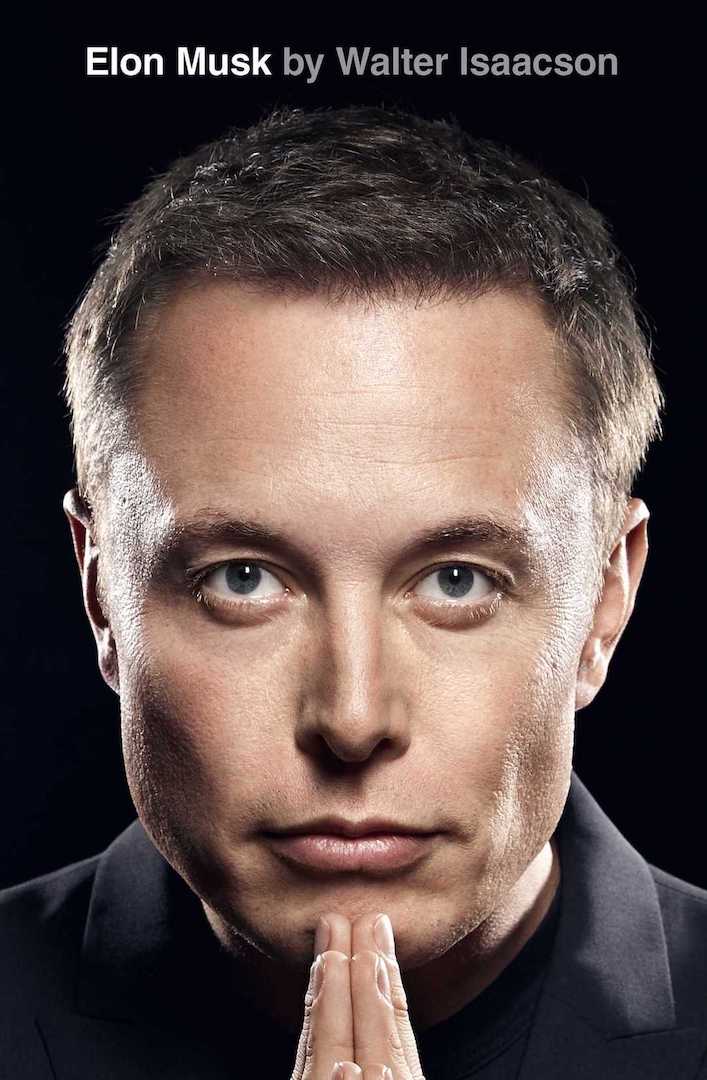
Life inside the home was not much better. Musk’s father Errol was domineering and verbally abusive.
The outside danger matched the inside. In one particular incident, Elon got into a fight with another student during recess. After pushing the boy, Elon was shoved down a flight of concrete steps by a group of classmates, who then mercilessly beat him. Elon’s brother Kimbal described the gruesome aftermath:
“When they got finished, I couldn’t even recognize his face,” he said. “It was such a swollen ball of flesh that you could barely see his eyes.”
Musk would have corrective surgery decades later to fix his nose, but when he arrived home from the hospital, his dad laid into him in for over an hour. As Musk described the situation, “I had to stand for an hour as he yelled at me and called me an idiot and told me that I was just worthless.”
Elon the Entrepreneur and Executive
In this world of violence, lacking empathy seems to have set the tone for much of Elon’s life, both personally and professionally. At various times, Musk has argued that empathy is a liability when it comes to business.
He’s certainly acted this way throughout his career. After success with a small startup (Zip2), Musk was able to co-found PayPal in 1999. There was success, but through a series of power struggles, he was ousted as CEO. After a merger with Confinity, Musk was invited back, but continuing tension led to his ouster again within a year. Eventually, Ebay would buy out PayPal, which made Musk a hefty $175 million from his shares.
From there, Musk would found SpaceX and would fund, and later run, Tesla. Like many others, I assumed Musk had founded Tesla, but that honor actually goes to Marc Tarpenning and Martin Eberhard. They were ousted by Musk during the 2007-2008 financial crisis.
Nevertheless, without Musk, Tesla would have certainly have experienced the fate of so many other auto-startups who couldn’t get from design to production to financial viability. Musk’s financial investment helped, but it was his extreme attention to detail and seemingly impossible timelines (which were achieved), that enabled Tesla to become the most valuable car company in the world in 2020. As of this writing (January 2024), Tesla Motors is valued at $666 billion. That’s billion with a “B.” It has also made Musk the richest man in the world, even after his purchase and the subsequent decline of Twitter (now X), Musk is still the richest person in the world (with a net worth of $227.8 billion).
Unfortunately for Musk, and the fans of that social media platform, Musk’s success has been notably damaged by a variety of controversial statements, many of which took place on X, purchased for $44 billion in October 2022. Musk has lost about half that amount with X over 2023, even after laying off 80% of X’s workforce.
X has been an uncharacteristic headache for Musk, and he has not helped matters with his notorious 3 AM tweets. These have become more political, boosting right-wing political causes, conspiracy theories, and even potentially dangerous products. Isaacson notes that X’s massive drop in advertising revenue directly results from Musk’s controversial tweets.
He also provides an apt description of the dangers X presents for someone like Musk: “Twitter is an ideal—almost too ideal—playground for Musk. It rewards players who are impulsive, irreverent, and unfiltered, like a flamethrower for the thumbs.”
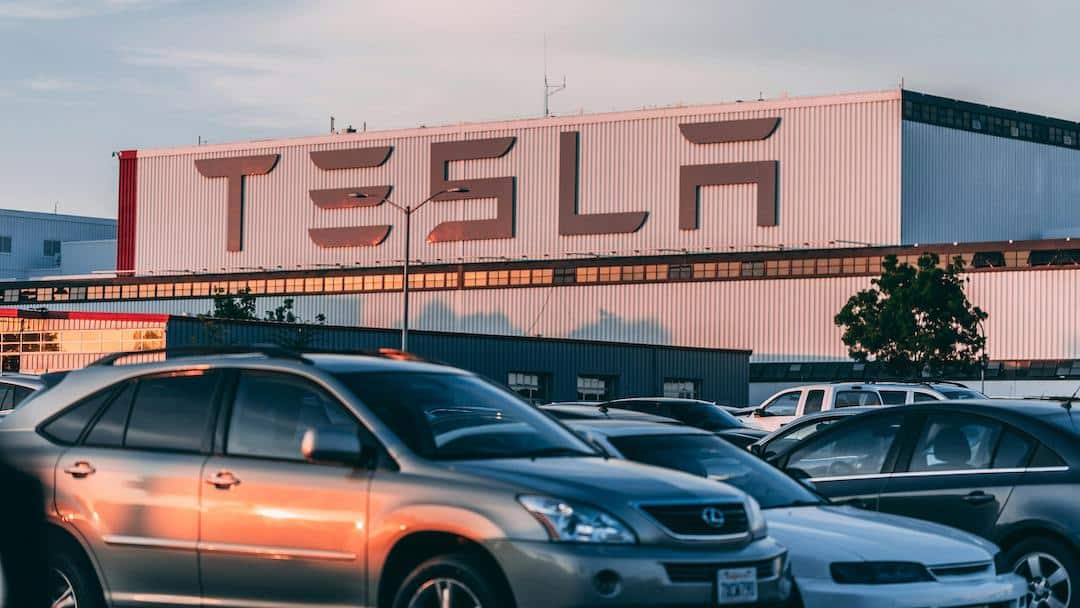
In spite of the X debacle, Elon Musk continues to capture headlines as he careens through history, one entrepreneurial effort at a time. His success has largely been the combination of talent and hard work. His notorious “surges,” all-night work parties, enabled his companies to make the world first privately funded spacecraft and the world’s first highly successful electric vehicle company, an internet company that can provide access to the furthest corners of the earth, and more.
One of the more alarming companies Musk has founded is Neuralink, which intends to implant a computer chip in your brain to enable a mind-meld between human and computers. Is that really the world we want to live in? It sounds like a science fiction movie, which again isn’t surprising considering Musk’s worldview draws so heavily upon Asimov and the aforementioned Adams. But as with Hitchhiker’s, it seems that Musk draws on these works in the exact opposite way their authors intended. Implanting computer chips into people’s brains should probably be seen as an apocalypse, not another brilliant advance for civilization. But I guess we shall see.
Nevertheless, his extreme work expectations have given the world a variety of products and services that have improved lives across the globe. But what about the collateral damage from all the people who were considered unworthy of sympathy when they didn’t conform to Musk’s expectations? The biography is replete with stories of demanding, “do x impossible task or your fired”…Not exactly an ideal work environment.
Towards the very end of the book, Isaacson compares Musk to one of SpaceX’s Starship launches:
“The explosion of Starship was emblematic of Musk,” he writes at the end of the book after a recap of that April test flight, “a fitting metaphor for his compulsion to aim high, act impulsively, take wild risks, and accomplish amazing things—but also to blow things up and leave smoldering debris in his wake while cackling maniacally.
One or Two Mountains?
At about the halfway point of Isaacson’s biography, I was reminded of a book by the New York Times op-ed columnist David Brooks, called The Second Mountain. The book is an exploration of a simple premise: many of the world’s most successful leaders begin their careers by climbing the mountain of success. Once they summit the peak, they find the view surprisingly unsatisfying. They realize that there is a second mountain, not marked by material success, but by a series of commitments: to family, to vocation, to a faith or philosophy, and to a community.
Sadly, as I read Elon Musk, it was clear that after 50 years, he was still trying to climb that first mountain over and over again, ad infinitum. His logic for doing so, multi-planetary existence and the survival of “human consciousness” fall flat as significant reasons for continuing to climb that first mountain. In one review, the subtitle to Elon Musk was “Elon Musk wants to save humanity. The only problem: people.”
For his sake, and perhaps more importantly, for the sake of the massive constellation of people who work for his companies, I pray that he will find some time to heal the gaping wounds of his childhood, enabling him to eventually give more of himself to the four commitments Brooks proposes. If he can, he may not change the world quite at the same level and pace, but he may be able to experience the real purpose of life, which cannot be reached by success alone.

Stuart Strachan Jr. is an ordained Presbyterian Pastor as well as the founder and lead curator of the Pastor’s Workshop. His primary passion is equipping the saints for the ministry of the church (Ephesians 4). He loves preaching, teaching, and helping churches cast vision for what it means to follow Jesus in the 21st Century. He has served churches in a variety of capacities in California, Colorado, Pennsylvania, and Washington.
Stu is married to Colleen, who currently serves as a spiritual formation lead at Compassion International in Colorado Springs. Stu and Colleen have two children (Jack and Emma) whom they love deeply.
In his free time, Stu enjoys gardening, golf, reading a good book, and watching baseball.
Read the book
Elon Musk
by Walter Isaacson
From PayPal to SpaceX, Elon Musk has an outsized impact on our world. Learn more about the man, his motivations, and the events that shaped him in this 2023 biography.
As a bonus, by purchasing this book through our link, you support The Pastor’s Workshop at no extra cost to you. As an Amazon affiliate, TPW receives a small comission from purchases through these links.
Don’t Miss
The Latest From Our Blog
New Site Launches Tomorrow!
Watch this Space! Tomorrow (May 29) is the official launch of the new The Pastor's Workshop site! Return to this blog tomorrow morning for a post highlighting the new features and explaining how subscribers can get on and start using the site! Here are some new...
How You Can Prep for Pentecost
This was originally posted on May 12, 2016 on https://huffpost.com Pentecost Came Like Wildfire I'm lying on an ice pack early this morning, doing my back exercises and listening to Pray as You Go, a tool for meditation, with monastery bells, music, and a Bible...
Sacred Spaces: the Church Forests of Ethiopia
Let's Go to Ethiopia! Here’s a fun exercise with a spiritual payoff. Go to Google Maps and view aerial images of the South Gondar zone of Ethiopia. Use this button:When the page loads, you'll see a light brown countryside, mostly farmland. There are thin lines of dark...

